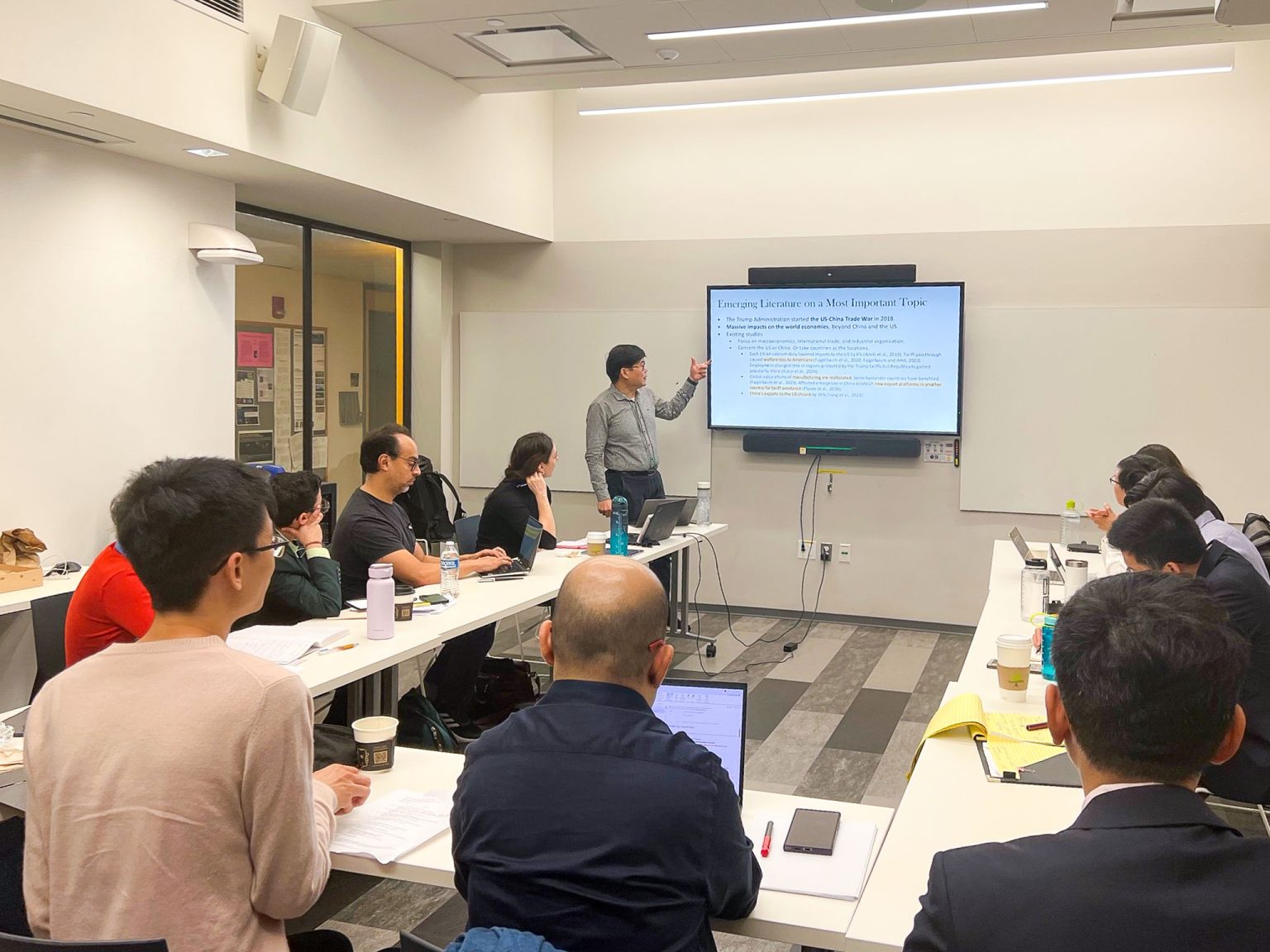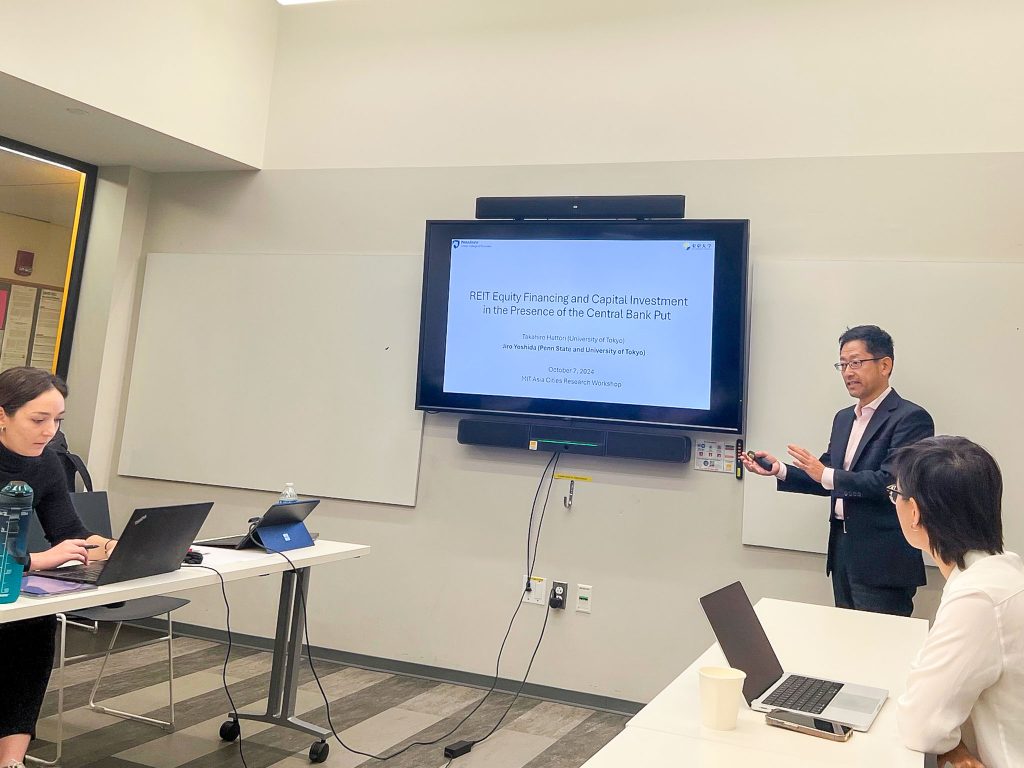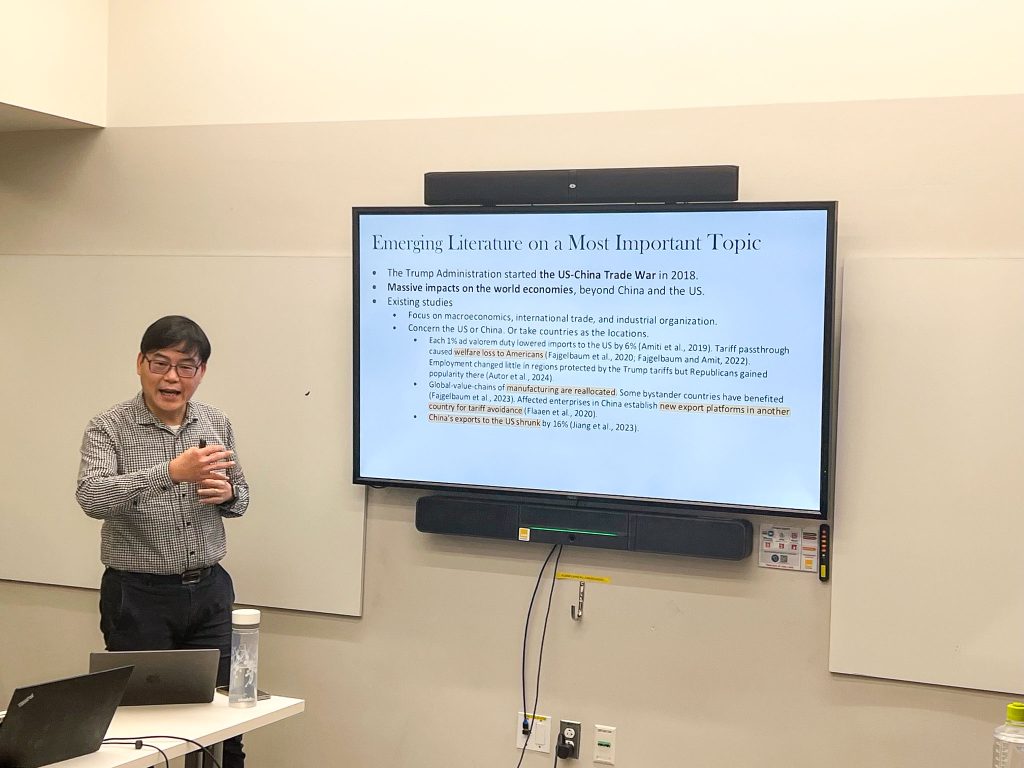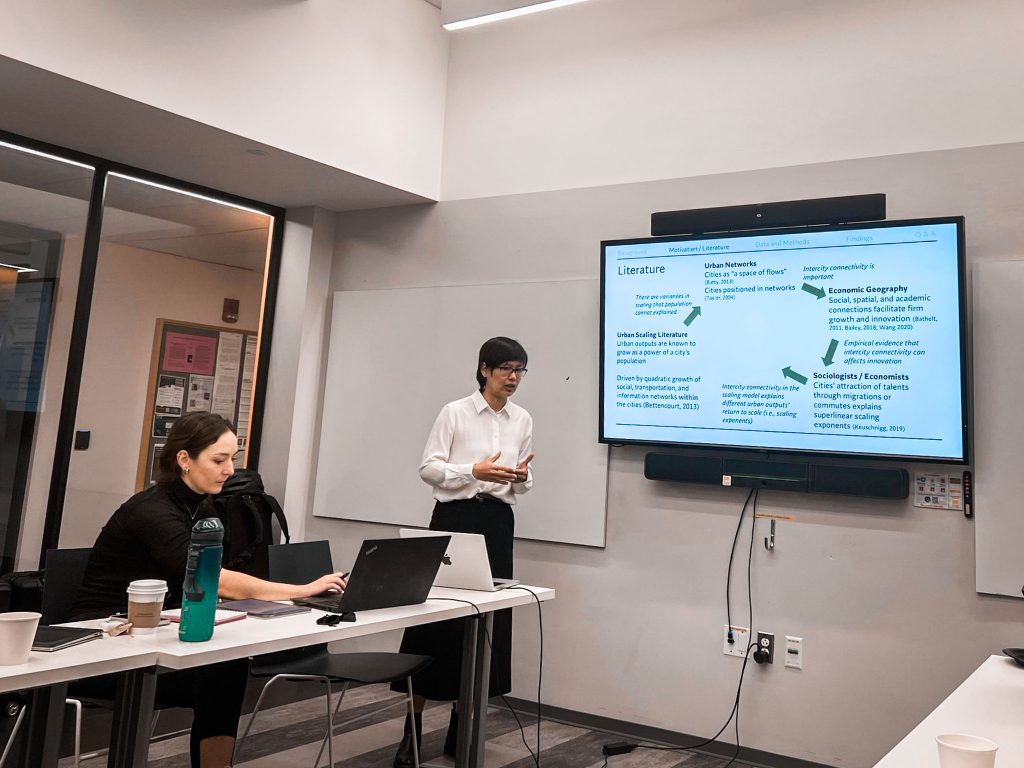
A collaborative workshop focused on Asian cities for scholars researching Asian urban development
On October 7, 2024, the MIT Center for Real Estate hosted a small workshop focused on Asian cities. The event provided an excellent opportunity for scholars working on Asian urban development to meet, share research findings, and discuss future directions.
The scholars came from diverse backgrounds, employing various methodologies and empirical data from cities across Asian countries, including Vietnam, China, India, and Japan. Despite this diversity, the workshop facilitated meaningful discussions on the common challenges and opportunities faced by the real estate sector in Asian cities.
The opening remarks were delivered by Professor Siqi Zheng, the STL Champion Professor of Urban and Real Estate Sustainability at MIT and Faculty Director of the MIT Center for Real Estate. She emphasized the importance of the workshop in fostering collaboration among scholars to address the challenges of rapid urbanization in many Asian cities.
The workshop featured a panel of six presentations, beginning with Professor Jiro Yoshida from Pennsylvania State University. Jiro discussed how the presence of a central bank “put” affects REIT equity financing and capital investment in Japan. This was followed by Professor Wen-Chi Liao from the National University of Singapore, who presented his research on “Tariff Wall Jumping at the China-Vietnam Border“, exploring how U.S. tariffs on China have driven Chinese production plants across the border into Vietnam.



Next, Professor Nghiem Huynh from the University of Oklahoma presented his work titled “Place-based Policy, Migration Barriers, and Spatial Inequality”, demonstrating through a general equilibrium model that combining place-based tax incentives with reduced migration costs more effectively mitigates spatial inequality in Vietnam than implementing each policy individually.
Professor Palak Suri from West Virginia University then discussed the welfare effects of introducing metro rail in Mumbai, focusing on the various benefits, including travel time savings, using both reduced form and structural econometric approaches. Following her, Professor Xiaofan Liang from Michigan highlighted the importance of intercity connectivity—particularly in communication, mobility, and collaboration networks—for driving innovation in Chinese cities.
Lastly, Dr. Ambra Amico discussed the role of air traffic connectivity in the establishment of new subsidiaries in cities worldwide, using Singapore as a key example.
In conclusion, the workshop successfully brought together diverse perspectives on urbanization and real estate development in Asia, fostering valuable dialogue and paving the way for future collaborative research efforts.
For full details on the MIT Asia Cities Research Workshop speakers and topics, visit the event page and learn more about the Center’s Asia Real Estate Initiative.
